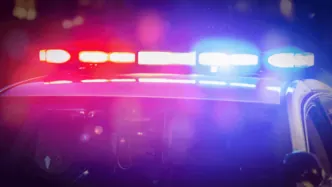The U.S. government has submitted a memo signed by Secretary of State Marco Rubio as evidence in its ongoing case to deport Mahmoud Khalil, a Columbia University activist and legal permanent resident, arguing that his presence in the U.S. poses a threat to foreign policy interests.
Khalil, arrested by ICE last month at his Columbia housing, is married to a U.S. citizen who is currently nine months pregnant. He is scheduled to appear before an immigration judge in Louisiana on Friday.
The two-page memo, submitted as key evidence, states that Rubio determined Khalil’s presence would “compromise a compelling United States foreign policy interest.” It cites Khalil’s alleged involvement in “antisemitic protests and disruptive activities” on campus that have contributed to what Rubio calls a “hostile environment for Jewish students.”
Crucially, the memo does not address earlier allegations that Khalil misrepresented information on his green card application—one of the original claims the government raised. Instead, it leans on a lesser-used provision in the Immigration and Nationality Act, which allows deportation if the Secretary of State believes a non-citizen’s presence in the U.S. may cause “potentially serious adverse foreign policy consequences.”
Khalil’s legal team fired back during a press conference Thursday. Attorney Marc Van Der Hout dismissed the memo as constitutionally flimsy:
“Rubio talks about First Amendment activity in the United States and the effect on people in the U.S. His ‘determination’ has absolutely nothing to do with foreign policy.”
The attorneys argue that criticizing U.S. or Israeli policies—no matter how controversial—is protected free speech and does not constitute a legitimate foreign policy threat. They plan to seek a deposition from Rubio to examine the basis of his claims.
Attorney Johnny Sinodis emphasized that even if the judge finds Khalil removable on Friday, the fight is far from over.
“This process plays out in immigration court, and it will most certainly require several more hearings before a final decision can be made.”
The case is being closely watched for its potential impact on First Amendment protections for immigrants, particularly those involved in activism. Critics argue it could set a precedent for silencing dissent by labeling political protest as a foreign policy threat.













